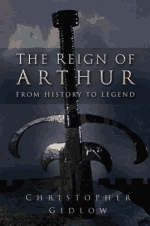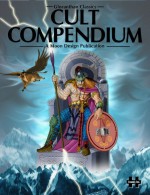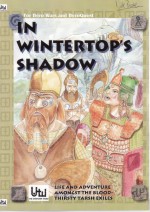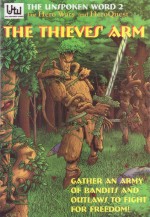
Products!
The most upsetting aspect of the Glorantha: Genertela box for many was the revelation and development of a large "mediaeval" area in the West of Genertela. The monotheistic, feudal kingdoms of Seshnela and Loskalm, and the civilised city-states of Safelster, seemed to bring RuneQuest out of its familiar ancient, "Bronze Age" setting and into the cod-mediaeval mainstream of role-playing games. (Not that RQ was always consistently "Bronze Age", whatever that means -- but we can safely assume it included "not mediaeval" among its many and various interpretations).
This wasn't altogether unexpected. Greg Stafford had always included knights and wizards, chivalry and sorcery in his vision of Glorantha: RQ2 only ever detailed a part of that world, where the ambience was more ancient-world, and also seemed deliberately to ignore the more mediaeval aspects of White Bear and Red Moon. Even so, it can be upsetting to come across someone who seems to have time-travelled or dropped out of a different genre altogether to arrive in your games.
Here's some ways of softening the blow.
The first is to find an Ancient culture that is similar or equivalent to the Mediaeval Western one you object to. Then treat the Westerners as if they were parts of that same paradigm. (For my money, a Dark Age parallel is just as useful: half-Christian barbarians coexisted alongside "real" barbarians in the Dark Ages, just as half-Malkioni tribes can coexist with real Orlanthi in Glorantha).
Examples:
| Safelster | Italian Renaissance | Classical Greek city-states |
| Seshnela | Normans/Crusaders | Dark Age Franks (Charlemagne) |
| Loskalmi | Germanic knights | Byzantine Empire (Belisarius) |
| Jonatela | Slavic/Balkan kingdom | ditto, accentuating paganism |
| Vadeli | evil Jewish merchants | Phoenicians or Carthaginians |
| Carmania | "a feudal kingdom" | Persian or Assyrian Dualists |
BTW, I'd recommend this in any case when you're developing a Gloranthan culture: try to have at least two "models" in mind, so you aren't just transplanting a RW culture to Glorantha, and so you can't just take it as read that things work the same way there as they did originally.
The second is to deliberately "blur the borders" where cultures meet. Thus, in Heortland we have three cultures coexisting: "true" Orlanthi (up in the highlands and around Whitewall), Aeolian Orlanthi (in the cities and centre of the old kingdom), and invading Seshnelan Rokari.
My favourite parallel for this is Ivanhoe, Sir Walter Scott's deliberately anachronistic historical novel about Norman vs. Saxon rivalry in King Richard's Merrie Olde England. I cast the Aeolian Orlanthi (the backbone of the "civilised" old kingdom of Heortland) as late Anglo-Saxons, the invading Rokari as William the Conqueror's Normans, and the "true" Orlanthi are just like Orlanthi anywhere: barbarians from the Celtic Fringe, probably the Welsh Princes for this period.
This way, I have models for the interaction between all the cultures: I know what their feasts and music are like, what they wear and how they act. The Rokari treat the Aeolians much as the similarly sensitive Carolingians treated Saxon pagans: this is a bloodier and more extreme version of the clash between Roman (Rokari) and Celtic (Aeolian) Christianity (Malkionism), as played out in the Real World's Dark Ages. The Aeolians and Orlanthi would have rubbed along for centuries, getting on each other's nerves but without coming openly to blows: many modern works of "Arthurian" fiction have a similar situation with Christians and Pagans fighting side-by-side in post-Roman Britain.
The aim in all this is to "turn the clock back" [1] -- if you can get used to seeing Glorantha as an Ancient world in which some cultures are more "sophisticated" than others, rather than a Mediaeval one with a backward region in the middle of the continent, you're doing well. Don't forget, the Roman Empire was in many ways more advanced than the Middle Ages that came after: this is why fifteenth-century Italians thought they had brought about the "re-birth" of the Ancient World in the Renaissance.
This makes my Safelstran parallel particularly tasty, IMHO, as Italians from the Renaissance would have been delighted to hear that they were living just like the Ancient Greek City-States! It also allows you to graft on any "chrome" from classical antiquity that you like: I tend to favour political and philosophical ideas from the fifth-century Greek world, but that's only because it's the period I know best, and because the Lunar Empire, otherwise admirable, is too damn' Imperial to allow much city-stating fun and frolics. The feuding Safelstran city-states then feel under threat from the Great King (of Seshnela) to the west, just as the Greeks felt the lowering presence of the Persians: but this means that plotters will conspire with the Enemy to win power for themselves (and the Seshnelan border-states can be compared to the Ionian city-states, happy under Persian rule but still very much embroiled in Greek politics).
Urgh, I'm getting over-technical. Better stop.
[1] Not that I object to turning the clock forwards -- Sartarite settlers fleeing log cabins shouting "The Redcloaks are coming"; Lunar hoplites reading their Little Red Books, the Death Rune and Sickle proudly blazoned on their shields; blond, blue-eyed sons of Loskalm riding forth into battle against the pagan hordes to the East; if it's evocative and it works for you, why not use it?
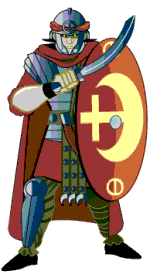
Awards!

Issaries, Inc have created Fan Material Required Statements and statements on Granting Credit Properly. This site accepts both. Etyries.com is owned by Nick Brooke, who has moral rights.

